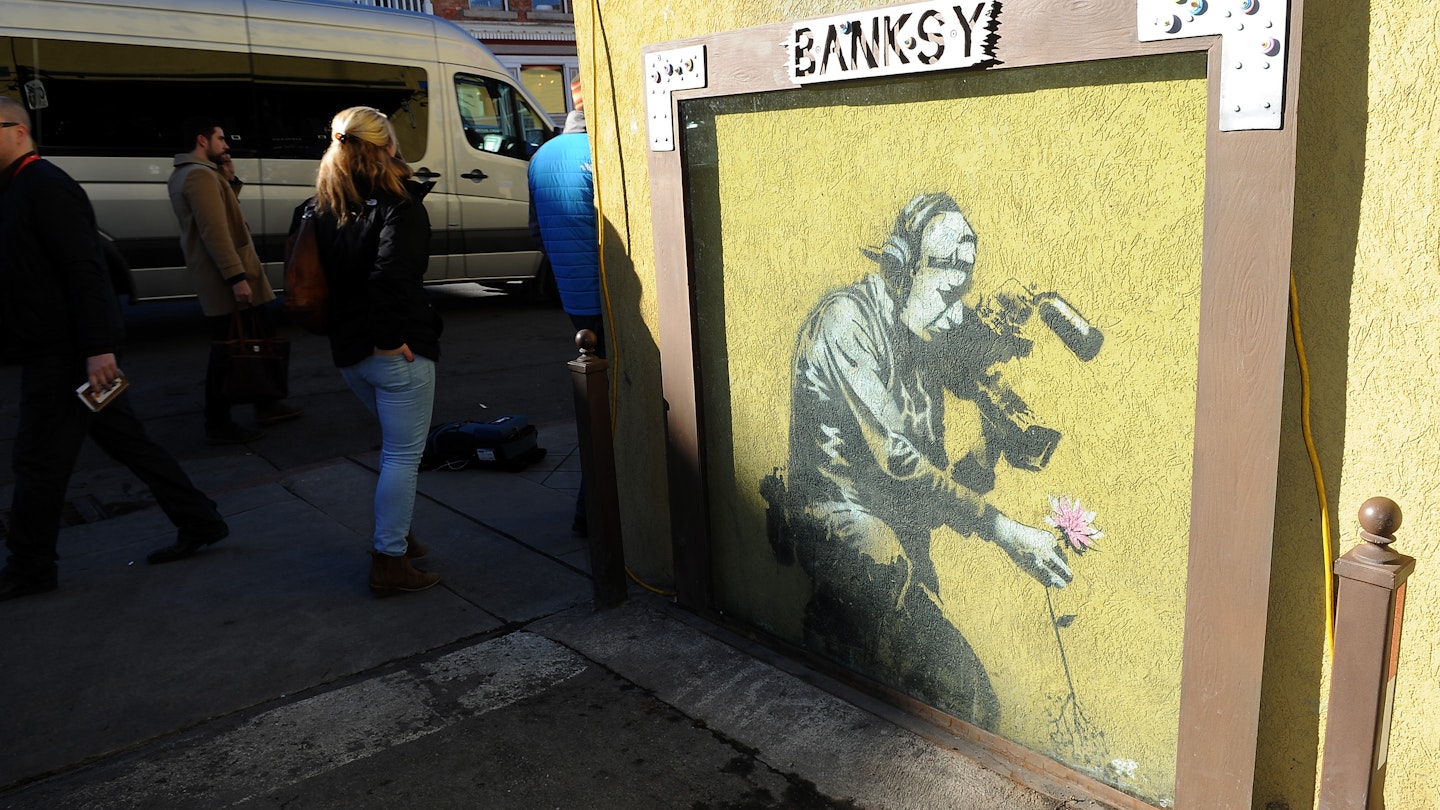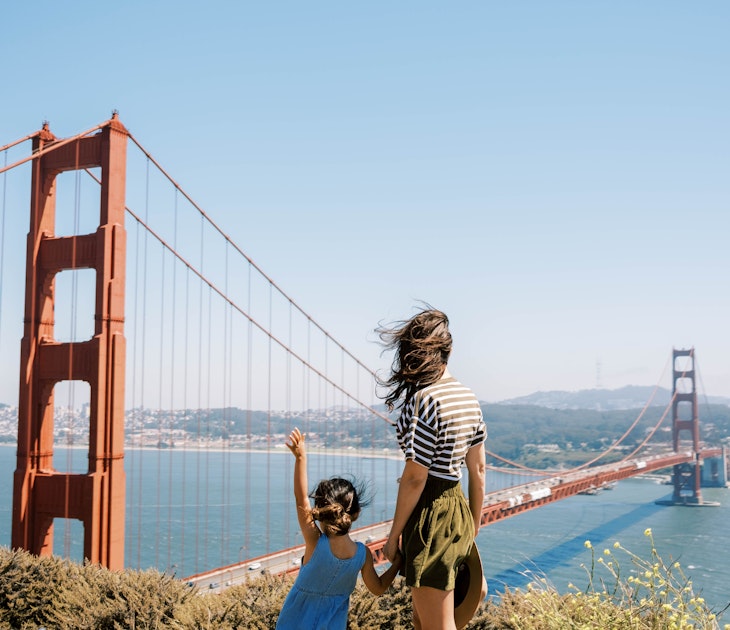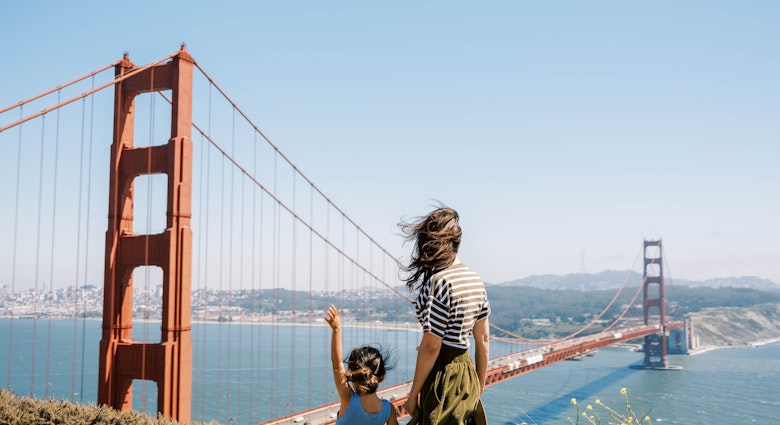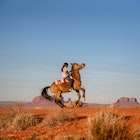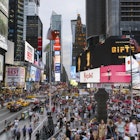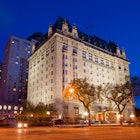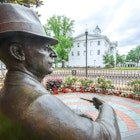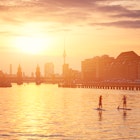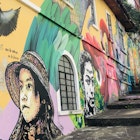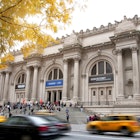Tracking down the elusive Banksy’s work is almost as difficult as the ongoing quest to confirm his identity. While Banksy is one of the world’s most well-known street-artist-slash-vandals, this is a double-edged sword for street art enthusiasts: almost as soon as he (or she) confirms a new work is his, other vandals will come to deface it.
As such, most of Banksy’s work around the world has been lost – and those pieces which remain are often protected under plexiglass or with fences to keep aficionados or less well-intentioned fellow artists away. If you’re up for peering through a chain-link or reflective acrylic cover to see Banksy’s work, here’s where you can see Banksy’s work in America.

San Francisco
While San Francisco was once home to at least six Banksy works, only one original work seems to remain. The Mission neighborhood is known for its murals and street art, and Banksy’s ‘Bird Singing in Tree’ can still be seen through a fence at the corner of Erie and Mission Streets, around the corner from Cafe Prague. When it was originally installed, Banksy’s simple tree trunk and bird chirping a horn was the only work on the building; today there’s a forest of trees by other artists.

Park City, Utah
Thanks to the foresight and efforts of local residents, all three of Banksy’s works in Park City, Utah have been preserved: one was removed for safe storage, one was covered immediately, and a third was restored after it was heavily defaced.
Both of the public Banksy works in Park City are located on Main Street: ‘Praying Boy’ depicts a young boy kneeling with a pink halo and angel wings, and is located at 537 Main Street. This work was the one restored after it was almost entirely painted over. The other is ‘Camera Man and Flower,’ located at 402 Main Street. It depicts a man pulling up a flower to get the perfect shot. Both pieces are now covered with plexiglass and framed by wood with Banksy plaques to help visitors realize their importance.

New Orleans
To mark the third anniversary of Hurricane Katrina in 2008, Banksy produced a series of works in New Orleans, most of which made a commentary about the government’s handling of the natural disaster. Today, only two of the original works are still in existence, protected in part because they were placed on less hurricane-affected buildings still standing today.
The easiest one to find is ‘Umbrella Girl,’ located at the corner of St. Claude Avenue and Kerlerec Street not far from the bustling French Quarter. It depicts a girl holding her hand out from under an umbrella, enduring a deluge. At the opposite end of the French Quarter and New Orleans’ Central Business District, you can see ‘Graffiti Eradicator’ at the corner of Clio and Carondelet Streets. This street art shows a recurring character type in Banksy’s satirical works: the graffiti eradicator painting vandalism.

New York City
New York City was once a hotbed of Banksy works, but now there’s only one you can be sure to see: ‘Hammer Boy’ on Manhattan’s Upper West Side. This work depicts a young boy wielding a huge hammer at a red standpipe. Today it is covered by plexiglass to protect it from being defaced.
There are two other Banksy pieces in the New York area, located in Brooklyn. In 2018, Banksy put two works on the walls near an abandoned gas station at the corner of Coney Island Avenue and Avenue I in Midwood. While neither have been officially named, one depicts a seal balancing a ball on its nose where a sign once hung. The other shows a man in a suit and hard hat brandishing a red line graph at a group of children, and many have interpreted it as a commentary on gentrification.

Los Angeles
One last destination where you can spot Banksy’s work is Los Angeles. There are two remaining Banksy pieces in the city if you know where to look – both in popular areas of the city. The first, ‘PARKING,’ is in downtown L.A. near the intersection of South Broadway and West 9th Streets. It depicts a girl swinging from the ‘A’ in the word Park. When it was installed it looked over a parking lot, but today it’s located in a small alleyway between buildings.
The other, ‘Selfie Stick,’ is a few blocks from TCM Chinese Theatre and located on North La Brea Avenue. It shows a couple in souvenir tee-shirts holding a selfie stick which connects to a security camera pointed ‘at’ them. Given how many selfie sticks are used along nearby Hollywood Avenue, it’s a clear example of one of Banksy’s commentary pieces.

